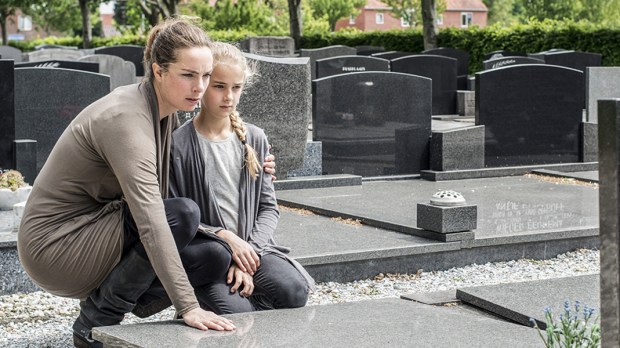All Souls Day on November 2, which follows All Saints Day, is an invitation for all the living and the dead to come together and do three things: give praise to the saints already enjoying the fulfillment of the beatitudes promised by Jesus, to intercede for the souls experiencing the mysterious state we call purgatory, and to pray for the perseverance of those of us who still walk the earth.
All Souls Day invites us to see death as a door to Eternal life. However, death as we experience it is extremely painful as it is a separation from our loved ones and triggers fear of unknown. Because of this, sometimes we are tempted to hide the idea of death from our children for longer than we should. Of course, it is not always possible, but is it even advisable? And if we do broach the subject, how should we proceed?
Don’t hide the truth from children
We all know that a child can be confronted with death from a very young age: the death of a father or a mother, of a brother, sister, grandparent, neighbor, etc. A child can face his or her own death through sickness or accident. Naturally, we should not broach the subject of death in the same way with a child whose days are numbered and with a child torn by grief over the disappearance of a loved one, or even a child who has not been directly exposed to death yet.
No matter the circumstances, though, it is never easy to talk of death with a child. However, words — no matter how clumsy — are better than silence because all children without exception wonder about death even when they don’t talk about it, which is the case when they sense that their parents aren’t ready to provide them with an answer (or worse, they realize they’re being lied to about the subject).
Children require truth in all things. This means that you don’t have to wait to completely recover your serenity in the face of death to talk about it. We mourn the death of a loved one. Without revealing all if our suffering, without turning our children into the confidents of our despair, we can absolutely show them that, we too are crying and that experiencing death is difficult for all of us. It is particularly important for a child to know that although Christian hope — trust in God and in eternal life — transforms our suffering, it does not abolish it completely. Jesus himself cried before the tomb of his friend Lazarus.Death is both the dazzling passage to meet the Maker and the horror of separation.
Finding the right words
Let us be careful as we speak of death to children to avoid the expressions that might confuse them. “The heavens” are found above our heads and if children do not realize that this term could also designate the Kingdom of God, they might naturally assume that the dead are suspended literally above our heads. Similarly, let us abstain from saying “God has taken your daddy.” A child might revolt against a God who “has taken” his or her father away.
As always, and especially when such fundamental questions treating death (or the beginning of life) are involved, let us remember that children only grasp what is of interest to them. They gradually soak in and understand information. It should not be a surprise to repeat things that we assume they have understood. Hence, little children have a hard time realizing that while waiting to be resurrected, the body and the soul are separated in death.
It’s important to remember that speaking of death to children is first of all speaking to them about life – the life that begins here below and is then fulfilled in life eternal. It is to make them attentive to the reality of this discrete and silent but very real presence of all those who have gone before us — this communion of saints that unites in one and same love those living on earth, and those in heaven. We should never stop repeating that the reason we know nothing about the afterlife, this great unknown after death, is because God wants to “surprise” us. And since God is the most loving of fathers, we can be sure that it will be a lovely surprise!
Christine Ponsard

